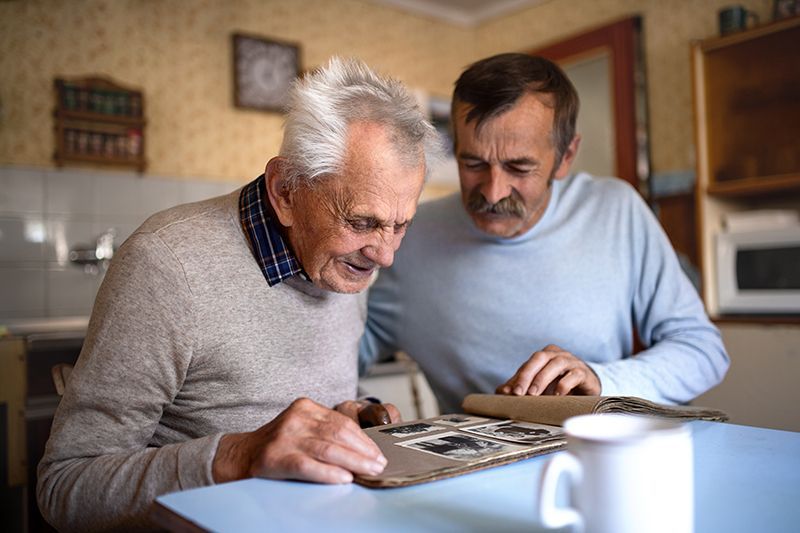How Reminiscence Therapy for Dementia Comes Alive Through Sports

Sports can take us back in time like few other things can. The cheer of a home crowd, the smell of the grass on game day, the thrill of hitting that game-winning shot…all of these moments live on in memory long after the scoreboard shuts off. For people living with dementia, these memories can be surprisingly vivid. That’s why reminiscence therapy for dementia, especially when centered around sports, is becoming such a meaningful way to connect, comfort, and engage.
Reintroducing these memories through conversations, activities, or memorabilia isn’t just a trip down memory lane; it can be a therapeutic tool that brings connection, engagement, and joy into dementia care.
The Staying Power of Sports in the Mind
As dementia progresses, recent memories often become hazy or vanish altogether. However, long-term memories—particularly those that carry emotional weight—can remain remarkably vivid. Sports memories are often among the strongest. The pride of playing on a high school team or the tradition of watching Sunday football with family can still feel alive.
By exploring these sports-based recollections, we invite individuals with dementia to reconnect with a part of themselves that’s still strong and accessible. It brings the past into the present in a way that feels validating and encouraging.
A Low-Stress Way to Connect
When someone with dementia struggles to recall something simple, like what they ate that day or the name of a visitor, it can be frustrating or disheartening. But sports memories create a different kind of space—one that doesn’t demand exact answers or immediate recall.
Instead, sports act as a shared language rooted in positive emotions. Asking about favorite teams or recalling a big win isn’t a test—it’s an invitation to remember and to feel good while doing it. These conversations also offer caregivers a meaningful way to connect that goes beyond task-based interactions.
Physical and Emotional Engagement
Rekindling interest in sports can do more than start conversations. It can encourage movement and activity. Tossing a soft ball back and forth, mimicking a golf swing, or simply watching a recorded game while seated can spark both physical and emotional engagement.
And when these moments are shared with grandchildren or younger caregivers, they can open doors for storytelling, laughter, and learning. Sports nostalgia becomes the glue that bonds generations.
Making It Part of Daily Life
The great thing about using sports nostalgia in dementia care is how simple it can be to implement. Keep a favorite team’s cap nearby. Display old trophies or newspaper clippings. Queue up classic sports games or documentaries. Even a coffee mug with a team logo can serve as a reminder of cherished times.
If you’re providing care and looking for more ways to keep your loved one engaged, a trained caregiver who specializes in dementia can help create a personalized routine that includes activities tied to their history and interests.
Compassionate Care Rooted in What Matters
At Traditions Home Health Services, we believe that great dementia care starts with knowing what matters to each person—what makes them smile, what gives them purpose, and what they still love to talk about. Sports can be a beautiful part of that picture.
Contact us any time at 617-376-3711 to learn more about our personalized in-home dementia care services in Cambridge, Boston, Westwood, and the surrounding areas in Eastern Massachusett, with live-in care services available throughout New Hampshire, Vermont, Maine, and Massachusetts. Together, we can help your loved one feel seen, heard, and connected—one story at a time.



